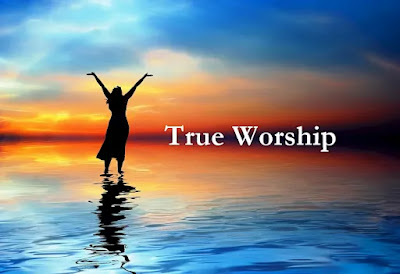 |
| James (5 months) and Ah Kong |
I used to sing the praise song, “I love you Lord” to my grandson James every night before he slept. James is 12 years old now, then he was 5 months old. Like every 5 month old, James will fight sleep but when he listened to this song, he would stop crying, become calm and would soon be ready for bed. It is a simple four line tune:
O my soul rejoice!
Take joy my King in what you hear.
May it be a sweet, sweet sound in Your ears.”
James just loved to hear this song repeated to him over and over again. In the singing I imagined we were praising God together, grandfather and grandson.
Worshiping God with a five month old in tow does not trivialise the act of worship. True worship is hard to find. If one could capture the right inspirational moment, an unfettered time, one should take the opportunity to worship. Make it simple. It is quite natural to worship with James in hand, for this baby is indeed a blessing from God; a clear and present evidence of God’s creative power and of His goodness.
 |
| Falzarego Pass, The Dolomites |
Once, when Jesus was in the temple in Jerusalem, the little children were shouting, "Hosanna to the Son of David," The priest and scribes were indignant at the commotion and they complained, "do you hear what these children are saying?" meaning to accuse him of instigating the children to blasphemy, "Yes," Jesus replied, "have you never read, "from the lips of children and infants, You have perfected praise?" (Matt 21:16 and Psalms 8:2). Perfect praise exudes from pure simplicity. Babies, by their very lives are testaments to God’s bountiful grace.
In contrast, there is much that is contrived and showy when adults worship. Words that come out forced can be hypocritical. Catchy tunes are sung repeatedly without thought to the adequacy and appropriateness of the lyrics. The Rev (Dr) Ben Witherington, Asbury Theological Seminary speaking in Singapore at the Aldersgate Convention in May 2008 asked the question, “Who is doing the worshiping? Who is the beneficiary?"
Speaking about congregational worship Dr Witherington (Ref 1) said, “We often hear people say I don’t go to that worship service because I don’t get anything out of it. But who is supposed to be doing the worshiping here? If it is the congregation, then the primary question should be where can I go to best give praise and worship to God, not where I can go to get the most out of it. Any experience that put us on God’s level is not worship. It is inappropriate and even shocking familiarity; indeed it can even be called idolatry. God condescends and remains God, we do not ascend and become as gods. Worship happens when the creature realizes he is not the creator and bows down to the One who is.”
In speaking to the Samaritan woman at the well, Jesus told her that where one worships, what styles one would use do not really matter. He told her one day, the true worshiper will be worshiping in spirit and in truth. No hypocrisy. God is more concerned with the attitude of the heart than the melody of the song; the motive of the people than the performance.
 A poor Methodist woman (Ref 2), probably a labourer in the work houses or a farmer’s wife in 18th century Britain wrote, "I do not know when I have had happier times in my soul than when I have been sitting at work with nothing before me but a candle and a white cloth, and hearing no sound but the sound of my own breath, with God in my soul and heaven in my eye. I rejoice in being exactly what I am – a creature capable of loving God and who, as long as God lives, must be happy. I get up and look for a while out of the window and gaze at the moon and stars, the work of an almighty hand. I think of the grandeur of the universe, and then sit down, and think myself one of the happiest beings in it."
A poor Methodist woman (Ref 2), probably a labourer in the work houses or a farmer’s wife in 18th century Britain wrote, "I do not know when I have had happier times in my soul than when I have been sitting at work with nothing before me but a candle and a white cloth, and hearing no sound but the sound of my own breath, with God in my soul and heaven in my eye. I rejoice in being exactly what I am – a creature capable of loving God and who, as long as God lives, must be happy. I get up and look for a while out of the window and gaze at the moon and stars, the work of an almighty hand. I think of the grandeur of the universe, and then sit down, and think myself one of the happiest beings in it."When we worship, it is not fulfilling an obligation, it is a human delight. Come back to 'The Heart of Worship.'
Lionel
1 Methodist Message 110(7) Jul 08
2 Mary Tileston, ed. Daily Strength for Daily Needs









.JPG)
